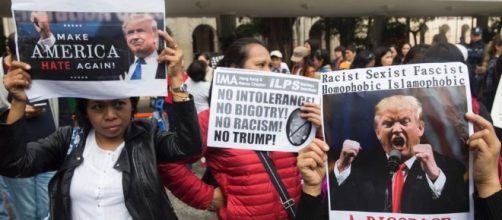The White House is not giving up its battle to keep citizens from six muslim-majority countries out of the U.S. through a travel ban imposed by U.S. President Donald Trump. In a decision on Thursday, U.S. 4th Circuit court of Appeals' Chief Judge Roger Gregory refused to reinstate the travel ban.
In rejecting the travel ban, Gregory said Trump’s executive order had vague words of national security but is full of religious intolerance, animus, and discrimination. The court upheld the decision of a lower court that blocked the suspension of issuance of new visas for 90 days for people who come from Iran, Somalia, Syria, Libya, Sudan, and Yemen until the government puts in place a stricter visa screening system, Associated Press reported.
Gregory wrote that while Congress has granted the president broad power to deny entry to aliens, it is not an absolute power. It must not go unchecked because the executive order can cause irreparable damage harm to individuals across the U.S.
Ban is motivated by religion
Comments made by Trump and his campaign before and after the election were cited as evidence that the policy was mainly motivated by religion, according to the Maryland Federal Judge Theodore Chuang, whose decision the Appeals Court upheld.
However, the White House insisted the executive order did not mention religion. The six nations were on the list not because Islam followers comprise the majority, but these countries present terrorism risks.
Attorney General Jeff Sessions said the temporary travel ban is needed to guard the U.S. against terrorist attacks.
Michael Short, a White House spokesman, added that since these days are very dangerous times, the country needs every available tool at its disposal to prevent terrorists from entering the U.S. and causing violence and bloodshed.
Three voted for the ban
Ten members of the court ruled against reinstating the travel ban, three voted for the ban. Two other judges of the court, both Republicans, were recused from the case. The appeals court pointed out that refugee groups, individuals, and other who would challenge the travel restriction have high chances of winning.
Groups against the ban claim it breaches the U.S. Constitution which prohibits favoring one religion over another, Reuters reported.
The government had insisted that Trump’s views during the campaign should not be taken into consideration by the court since it happened before the billionaire became president on January 20. However, the court did not buy that argument because Trump’s campaign comments provide a window into what motivated his actions as president.


